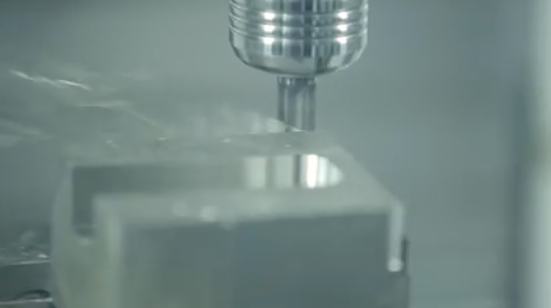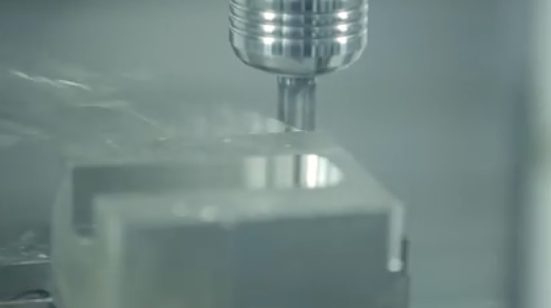Helical Solutions lauded for exceeding expectations
Helical Solutions lauded for exceeding expectations
Helical Solutions LLC recently announced a top-tier finish in the 2015 Boeing Industry Challenge II, which is an invitational tournament meant to test the world's strongest and highest-performing milling tools in aerospace titanium.

 Helical Solutions LLC recently announced a top-tier finish in the 2015 Boeing Industry Challenge II, which is an invitational tournament meant to test the world's strongest and highest-performing milling tools in 6AL4V, a material common to the aerospace industry and intended to yield higher metal removal rates in a repeatable manner.
Helical Solutions LLC recently announced a top-tier finish in the 2015 Boeing Industry Challenge II, which is an invitational tournament meant to test the world's strongest and highest-performing milling tools in 6AL4V, a material common to the aerospace industry and intended to yield higher metal removal rates in a repeatable manner.
"When we learned that we were invited by Boeing to participate in this thoughtful and rigorous challenge, we jumped at the opportunity," said Scott Tiehen, Helical's vice president of sales. "Our team immediately began working hard to leverage proprietary geometry, coatings and expertise to develop the perfect tool. Our successes at the Industry Challenge worked only to affirm my unyielding belief that Helical tools, and the Helical team, are among the world's best."
Hosted by Boeing's Portland, Ore., plant, one of the largest machine shops in the world, and held at University of Sheffield's Advanced Manufacturing Research Centre, the Challenge was compartmented into two chapters: Traditional and High Velocity. Helical Solutions earned Exceeds Expectations recognition for the Traditional Finishing parameters.
Boeing outlined specific operating boundary conditions, as well as performance deliverables, to maintain an even test environment for all participants. Exact parameters have been omitted from this document in respect to Boeing's confidential operations.
Decisions related to tool geometry, coating and coolant, however, were made by each participant. Helical opted to use proven tool geometry, but added a unique core strategy for increased strength, said James Graham, Helical's engineering manager.
"We also opted to use a proprietary coating that we have developed in-house with our coating manufacturer, he said. "It works awesome in titanium."
After allotted periods of machining time, edge wear on tools was recorded and critiqued. Three stages of test results are critiqued by Boeing when determining a tool manufacturer for upcoming projects.
Boeing has chosen to keep the peak performers of the final stage confidential, but said that Helical was in the "upper echelon of competition," said Helical Solutions Northwest Sales Manager Rick Woods. Excelling earned Helical one of just a few spots in the third and final round of the competition.
"Everyone at Helical was constantly asking us if we made it to phase three," added Graham. "When I received word, it was the biggest pleasure for me to let them know that we made it. We out-performed some of the biggest and best in the world, and that's something we're extremely proud of."





